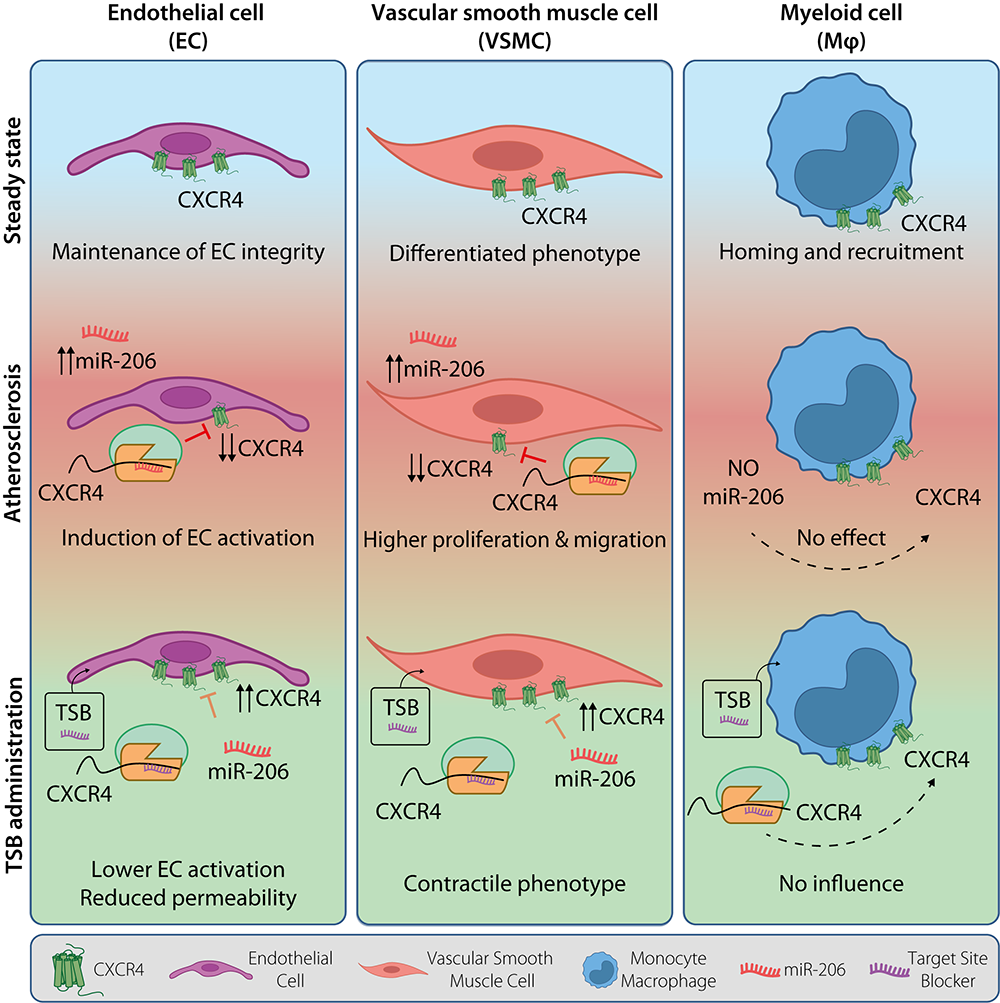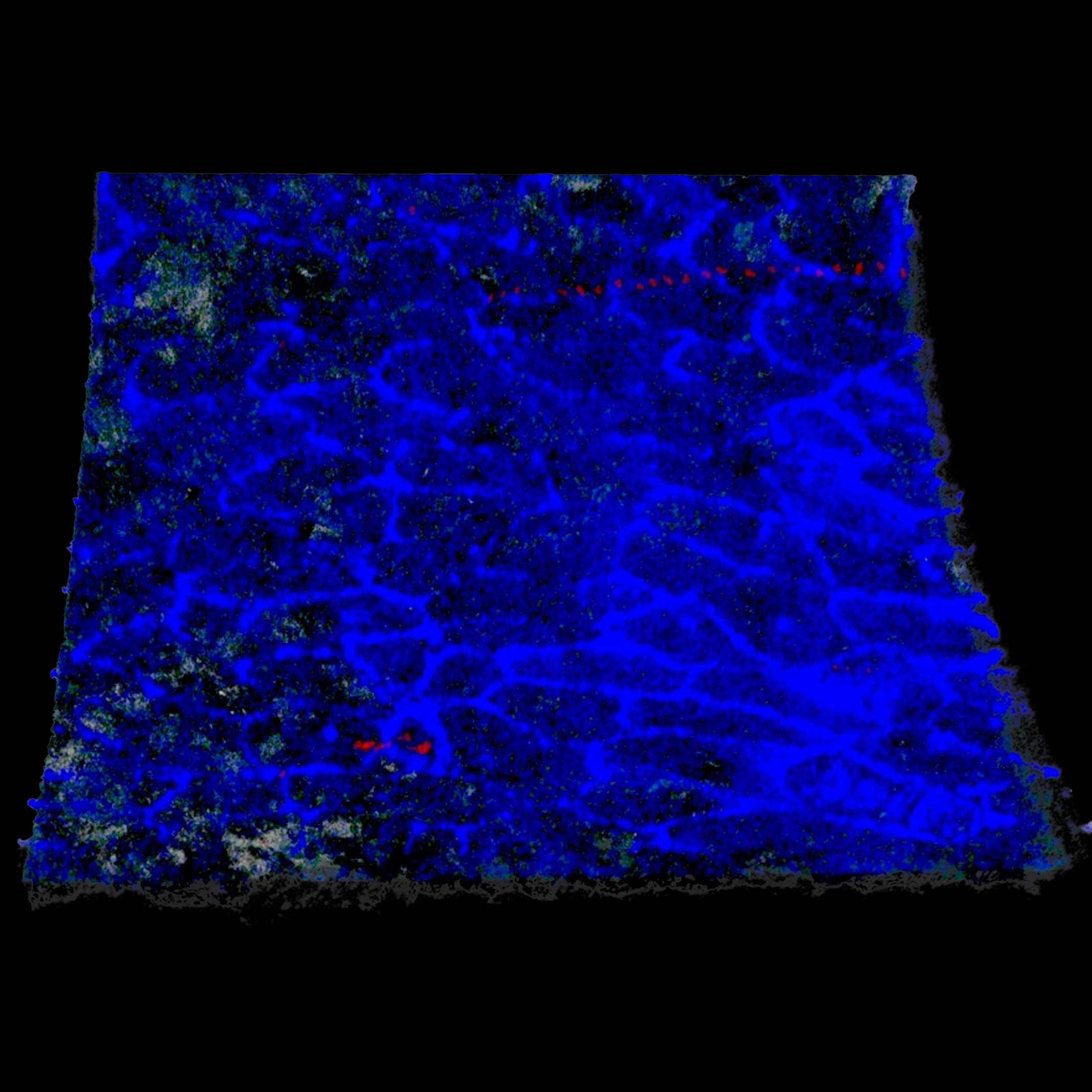Atherosclerosis is considered a frequent cause of cardiovascular diseases and strokes. Despite medical progress, case numbers are constantly rising. Targeted new therapeutic approaches are therefore more important than ever. IPEK researchers led by Christian Weber, director of the Institute, and Donato Santovito, leader of the Translational Vascular Therapy research group, have now identified a specific microRNA molecule as a promising starting point for the investigation of new therapies.
Some time ago, the researchers had already demonstrated that the transmembrane protein CXCR4 plays a significant role in the development of atherosclerosis. The protein transmits signals to the cell interior. If CXCR4 is specifically silenced in arterial endothelial cells or in smooth muscle cells, it results in more severe atherosclerotic lesions. At the same time, there is increased leukocyte ingress into the cell, which leads to inflammatory processes. With regard to leukocytes, however, the presence of CXCR4 can also promote the development of inflammatory processes. “It made sense, therefore, to only boost the expression of CXCR4 on the cells of the vascular wall in order to counteract the atherosclerosis,” says Santovito. “The challenge, however, is not to influence any biological processes, as the protein occurs in all cells and exercises various important functions.”

Synopsis of the miRNA-disengagement approach. A target site blocker (TSB) oligonucleotide prevents miR-206 from repressing CXCR4 in the cells of the vessel wall (i.e., endothelial and smooth muscle cells) to promote antiatherogenic features, without off-target effects in myeloid cells that do not express miR-206 and are not influenced.

